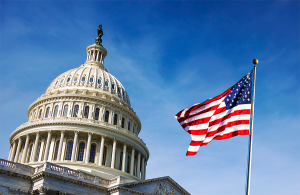Rosa DeLauro (CT-03)has asked the FDA to remove all ranitidine-based products from shelves.

Friday, January 10, 2020 –  One congresswoman has led a push to ban Zantac and other ranitidine-based medications in the U.S. due to concerns that they are causing cancer.
One congresswoman has led a push to ban Zantac and other ranitidine-based medications in the U.S. due to concerns that they are causing cancer.
Heartburn drug Zantac and other products containing a drug called ranitidine have taken a hit in recent months after online pharmacy Valisure discovered the carcinogen N-nitrosodimethylamine (NDMA) in every ranitidine product it tested in June 2019. NDMA has been linked to digestive tract, kidney, bladder, and other cancers.
The FDA responded three months after it was notified of Valisure’s findings by issuing a warning to healthcare providers and to the public about the problem. In the warning, they suggested that more testing was needed.
Since then, several companies, including Zantac manufacturer Sanofi, as well as American Health Packaging, Amneal, Apotex, Appco Pharma, Aurobindo, Denton Pharma, Dr. Reddy’s, Glenmark, Golden State Medical Supply, Lannett Company, Novitium Pharma, Perrigo, PrecisionDose, and Sandoz have recalled their ranitidine-based products. Additional recalls continue to be announced.
In a letter to FDA Commissioner Stephen Hahn and HHS Secretary Alex Azar, Congresswoman Rosa DeLauro (CT-03) urged the FDA to go further and immediately issue a nationwide ban on ranitidine, saying, “FDA’s failure to stop companies from selling ranitidine makes the United States government complicit in exposing infants and adults to the risk of cancer.”
“Valisure’s data, in combination with four decades of research, strongly suggests that ranitidine is a fundamentally unstable molecule and all products containing this drug have a risk of cancer,” she wrote. “It is incomprehensible that the FDA is fully aware of this fact, yet, it continues to allow this product on the shelves.”
More than a Contaminant
In its warning, the FDA called NDMA an “impurity,” suggesting that ranitidine products were contaminated with the probable carcinogen. Valisure stated in a petition sent to the FDA that NDMA presence was not due to contamination, but was due to the nature of the ranitidine molecule.
They pointed out that the molecule itself contains the nitrate group and dimethylamine, which are the elements needed to form NDMA, and that the digestive process was likely a culprit for formation of the compound. They contend that the digestive process breaks down the chemical makeup of ranitidine and results in the formation of NDMA molecules.
Valisure supported this point by supplying data published by Stanford University that show a significant and disproportionate rise in the amount of MDMA excreted in urine following ranitidine ingestion.
Recalls Around the World
So far, 41 countries have taken more steps to protect consumers than the United States. In her letter, DeLauro noted that Bangladesh, Canada, Egypt, and South Korea have banned all sales of ranitidine because of concerns about MDMA. Germany, Denmark, Pakistan, Kenya, and Vietnam have removed ranitidine products from shelves and from their distribution channels.
Other countries have issued warnings about the dangers of ranitidine, while others have threatened to enforce fines upon sellers and distributors who fail to comply with recalls.
Zantac Lawsuits
Sanofi, which manufactures Zantac, is now facing lawsuits filed in courts across the United States, and a motion has been filed with the U.S. Judicial Panel on Multidistrict Litigation to consolidate many of the cases for pre-trial proceedings.
If you have used Zantac regularly and have been diagnosed with bladder, colon, kidney, rectal, stomach, or another cancer, you may be eligible to file a claim. Contact OnderLaw for a free consultation.
Contact OnderLaw, or click here to request a free consultation. OnderLaw works on a contingency basis, meaning you pay us nothing unless you win your claim.






